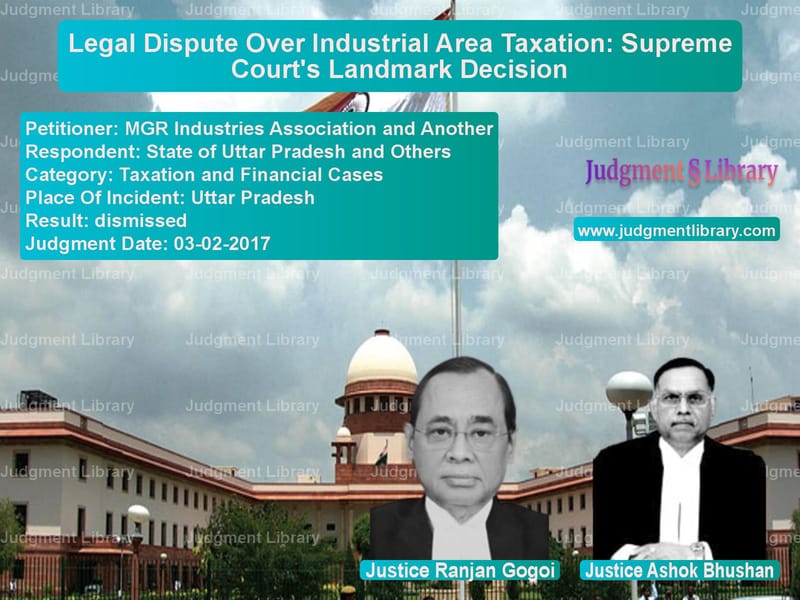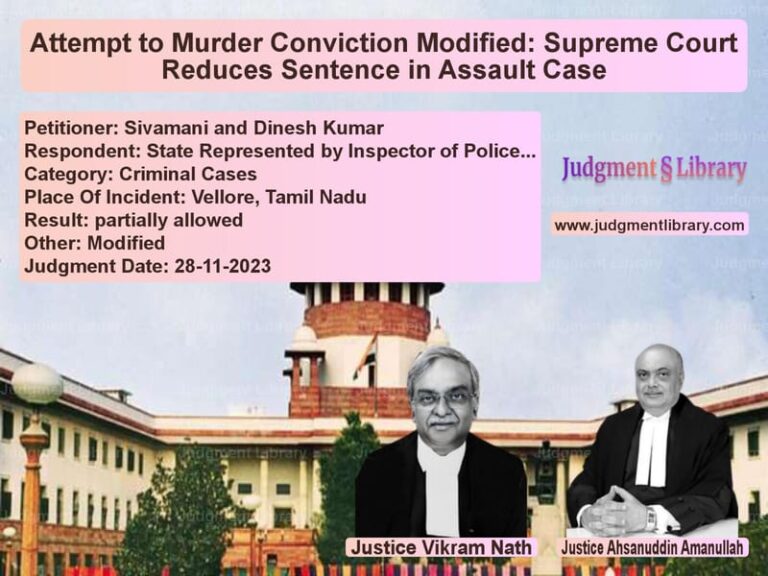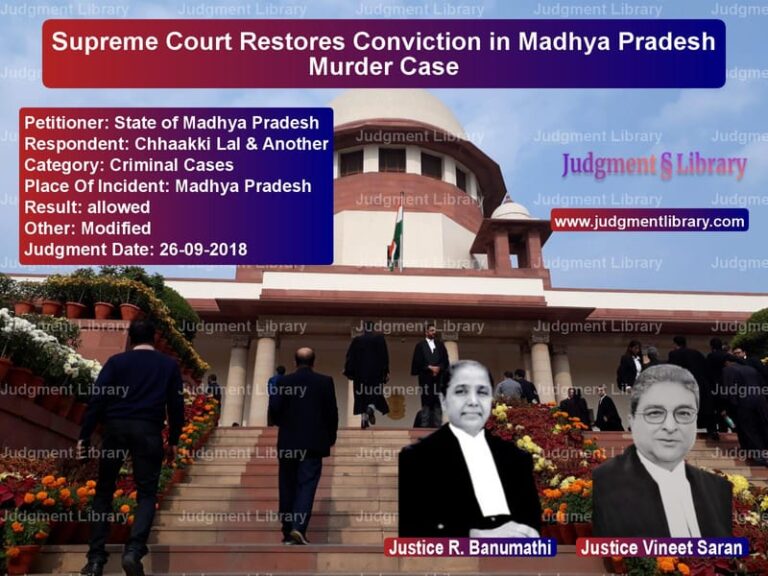Legal Dispute Over Industrial Area Taxation: Supreme Court’s Landmark Decision
The Supreme Court of India recently ruled on a significant taxation dispute concerning industrial areas in Uttar Pradesh. The case involved MGR Industries Association and Another versus the State of Uttar Pradesh, where the petitioners challenged the imposition of local taxes by the Zila Panchayat, Hapur. The Court’s verdict clarified the legal standing of taxation in industrial areas under the Uttar Pradesh Industrial Area Development Act, 1976, and Article 243-Q of the Constitution.
Background of the Case
The dispute arose when industrial units within a designated industrial area were subjected to local taxation by the Zila Panchayat. The petitioners contended that their industrial zone should be exempt from such taxation, arguing that it fell under a special category governed by the Industrial Area Development Act. However, the local authorities maintained that, in the absence of a government notification under Article 243-Q, taxation was lawful.
Legal Questions Before the Court
The Supreme Court examined the following key legal issues:
- Does an industrial area automatically gain exemption from local taxation upon designation under the Industrial Area Development Act?
- Is an explicit government notification under Article 243-Q required to exempt an area from local governance and taxation?
- Does the imposition of dual taxation on industrial areas violate any legal provisions?
Arguments by the Petitioners
The petitioners presented the following arguments in support of their case:
- Their industrial area had already been recognized under the 1976 Act, which should preclude taxation by the Zila Panchayat.
- Section 12-A of the Act restricted the jurisdiction of local bodies over notified industrial areas.
- Double taxation was unjustified as industrial units were already subject to levies under the Industrial Area Development Act.
- Other industrial zones had been granted exemptions, making their taxation discriminatory.
Government’s Counterarguments
The State of Uttar Pradesh countered with the following points:
- The petitioners’ industrial area had not been officially declared an ‘industrial township’ under Article 243-Q(1).
- Tax exemptions required a formal notification, which was not issued in this case.
- The Industrial Area Development Act did not override the taxation powers of local authorities without explicit exemption.
- Different taxes served distinct purposes, and dual taxation was not necessarily unlawful.
Supreme Court’s Observations
The Supreme Court analyzed the legislative intent behind Article 243-Q and the Industrial Area Development Act. The Court held that:
- A mere designation as an industrial area does not automatically grant exemption from taxation.
- For exemption to apply, the area must be explicitly notified as an industrial township under Article 243-Q(1).
- In the absence of such a notification, local bodies retain their jurisdiction over taxation.
- The claim of double taxation was dismissed as the levies addressed different administrative and infrastructural needs.
Final Judgment and Rationale
Affirming the Allahabad High Court’s decision, the Supreme Court dismissed the petition, stating that:
- Until the government issues an explicit exemption, the industrial area remains subject to local taxation.
- Tax exemptions must be backed by formal notifications rather than inferred from legislative intent.
- The legislative framework does not inherently grant exemptions; businesses must proactively seek formal recognition.
Implications of the Judgment
This ruling sets an important precedent for businesses operating in industrial zones. It establishes that tax exemptions are not automatic and must be explicitly granted through formal procedures.
The decision also emphasizes the necessity of clear legislative processes. Business entities seeking tax relief must engage with the government to secure official notifications rather than assume automatic exemption.
By reinforcing the principle of statutory clarity, this Supreme Court judgment ensures a structured and predictable legal framework for industrial taxation.
Don’t miss out on the full details! Download the complete judgment in PDF format below and gain valuable insights instantly!
Download Judgment: MGR Industries Assoc vs State of Uttar Prade Supreme Court of India Judgment Dated 03-02-2017.pdf
Direct Downlaod Judgment: Direct downlaod this Judgment
See all petitions in Tax Refund Disputes
See all petitions in Banking Regulations
See all petitions in Income Tax Disputes
See all petitions in Judgment by Ranjan Gogoi
See all petitions in Judgment by Ashok Bhushan
See all petitions in dismissed
See all petitions in supreme court of India judgments February 2017
See all petitions in 2017 judgments
See all posts in Taxation and Financial Cases Category
See all allowed petitions in Taxation and Financial Cases Category
See all Dismissed petitions in Taxation and Financial Cases Category
See all partially allowed petitions in Taxation and Financial Cases Category







